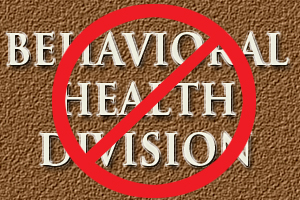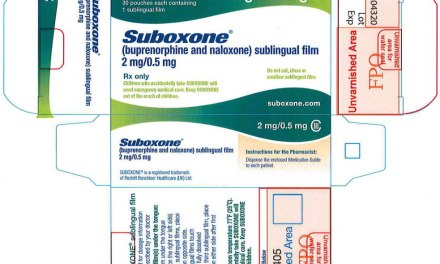In a culture where we can hardly be bothered to spell out three letter words (R U listening?) it’s unreasonable to expect that complex concepts won’t be tagged, simplified, labeled—reduced to shorthand versions of themselves. Sometimes it’s harmless, even beneficial.
“Behavioral health” isn’t one of those constructions.
The field is full of awkward attempts to create useful jargon, hopefully coined and ultimately abandoned. (Who says “chemical dependency” any more? Or talks about someone being “manic depressive?”)
The problem is compounded by well-intentioned attempts to avoid pejorative labeling. We hopefully speak of providing “mental health services” rather than referring to the mental illnesses that bring people to our doors. Stigma is a difficult enough problem without terminology providing excuses to perpetuate harmful stereotypes.
Yet with the bland, optimistic construction “behavioral health,” that’s just what we’ve done. What is the common factor in the problems we address? Why, the fact that the symptoms of mental illness, of addictive disease, of compulsive disorders are all manifested in the form of behaviors. Harmful behaviors, destructive to the self and others and even to the larger community. They are, indeed, “behavioral illnesses.”
But the word “behavior” implies volition and control. We “behave” or we “misbehave,” and our culture promotes the notion of responsibility for our “behavior,” without accommodating the concept of behavior-as-symptom.
The behaviors symptomatic of these illnesses are destructive and repugnant. Ending those behaviors, and learning to deal with their consequences, are a necessary part of the recovery process. Someone whose impaired driving causes injury or death must not be excused of responsibility for that offense because of their disease. Someone who has irreparably damaged their body with years of self-starvation or injury cannot escape the consequences of that behavior.
Nevertheless, calling these diseases “behavioral illnesses” and calling our systems of care “behavioral health programs” promotes two destructive, harmful beliefs that undo much effort to eliminate stigma:
Emphasizing behavioral symptoms reinforces the conceptual link between the behaviors and the names of the illnesses: “Alcoholism” is more strongly coupled with the mental picture of someone who does harm than with someone who needs help. “PTSD” evokes scary images of rampage. Great way of perpetuating and even increasing the damaging stigma that makes it so difficult for people to get help.
Even more destructive is the assumption that behaviors are the cause, rather than the symptoms, of the illnesses:
“Using drugs causes addiction.” Except that it doesn’t. Millions of people use drugs without becoming addicted.
“If they didn’t gamble, they wouldn’t have the compulsion.” But millions gamble recreationally, without ever experiencing the destructive compulsion.
“If they didn’t diet, they wouldn’t get anorexia.” Most dieters never endanger their lives.
“Oh, just cheer up. If you didn’t look at the down side of everything, you wouldn’t get depressed.”
Not only do these ignorant notions reinforce stigma, they cause deep pain and alienation among those who suffer from the diseases.
What term can we use to replace “behavioral health?”
We’re open to suggestion. But “behavioral health” has to go.














As one of many technical assistance providers in the “behavioral health” world, I can assure you we are well aware of the challenges with this term and this debate will continue. As a peer/consumer/patient/client/ and a direct service provider myself, The problem, at least as I see it is that regardless of the word you choose, that it designates a specific cohort within our population leaves it immediately open to the same problem; it eventually ends up labeling and ultimately stigmatizing those of us who use “behavioral health” services. So we can certainly change it, and I too am open to suggestions, but I think a better use of our time is in working to destigmatize the idea of treatment in general, whether from a primary care or a behavioral care provider, and promote the acceptance, compassion and understanding about mental health challenges and addiction.